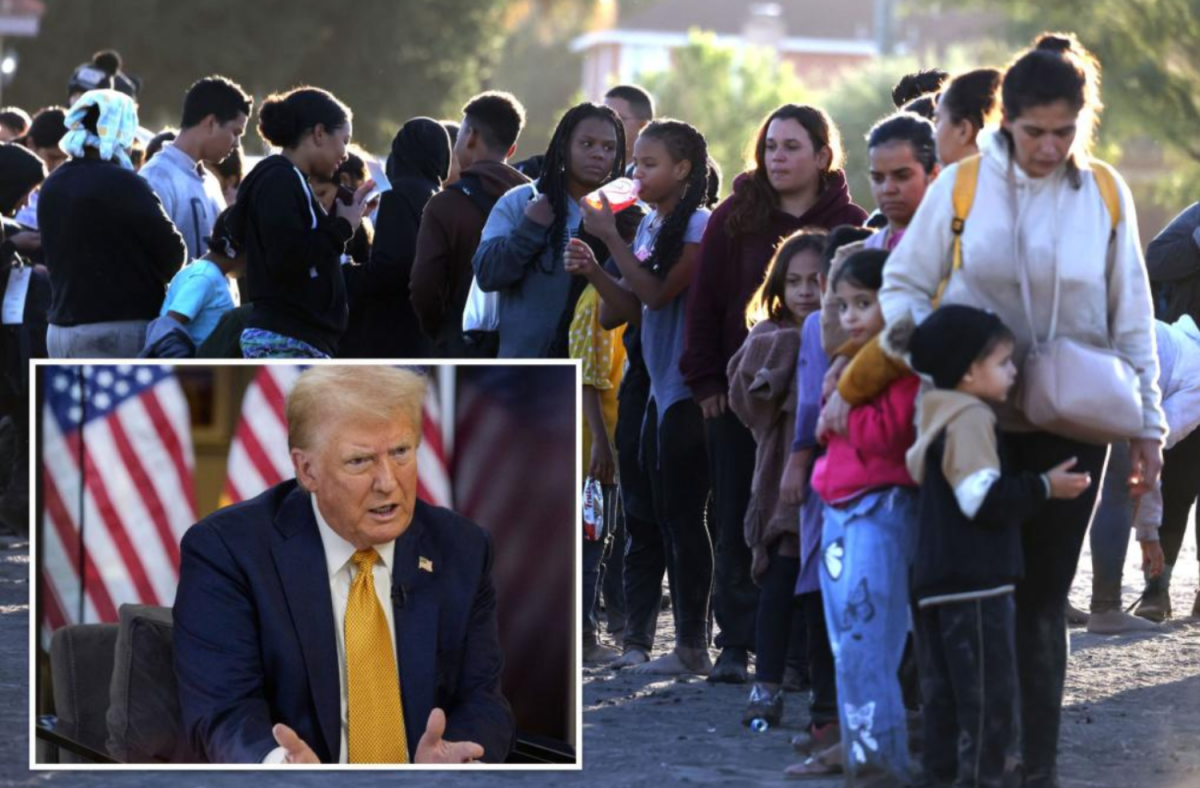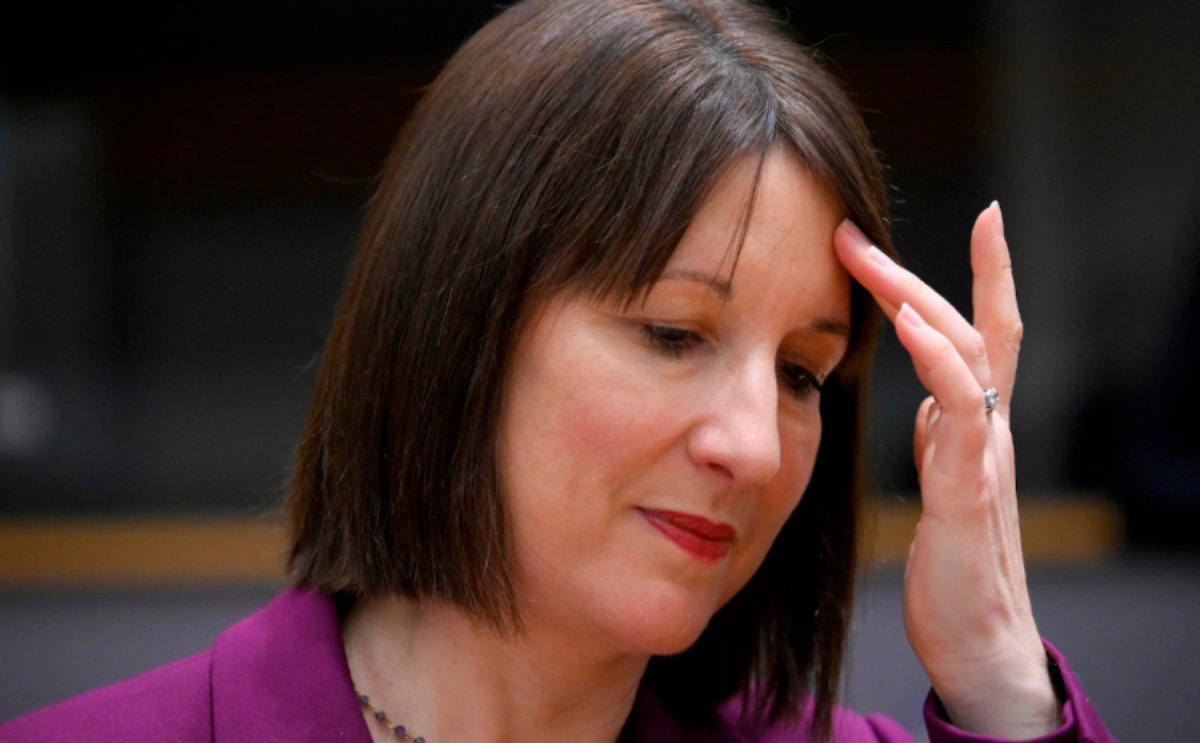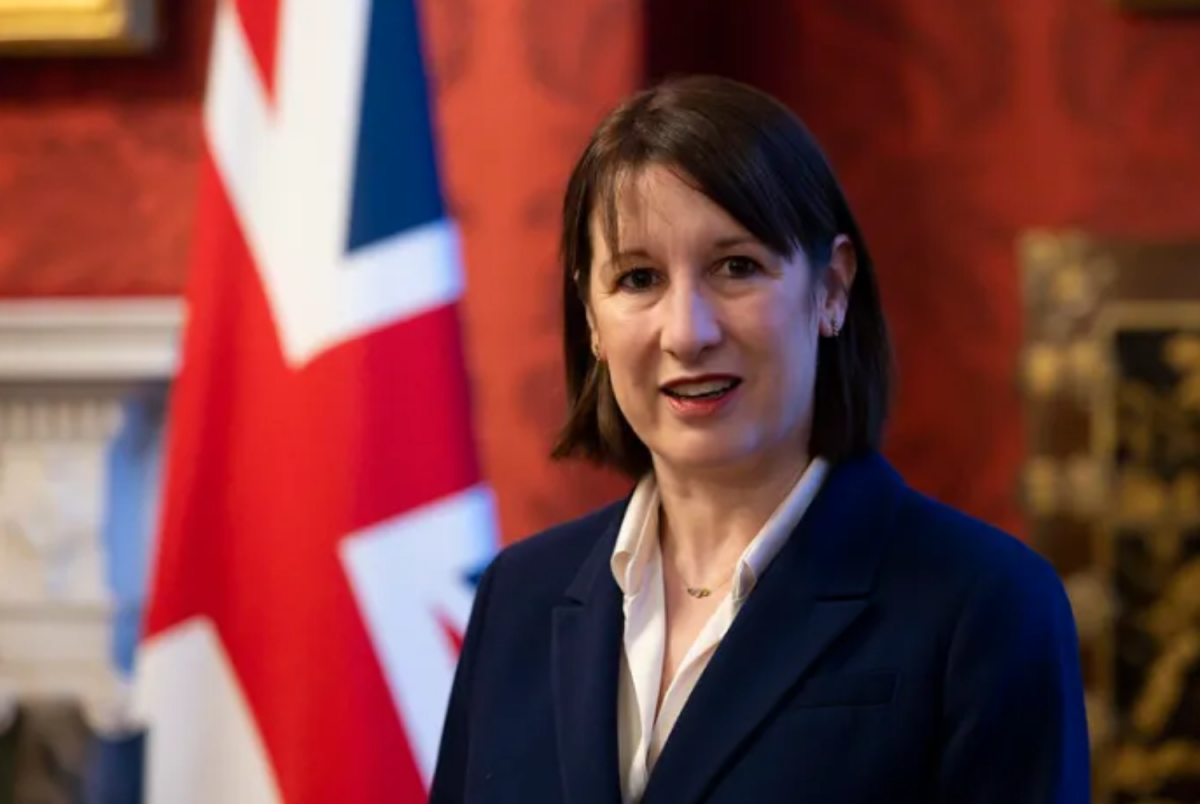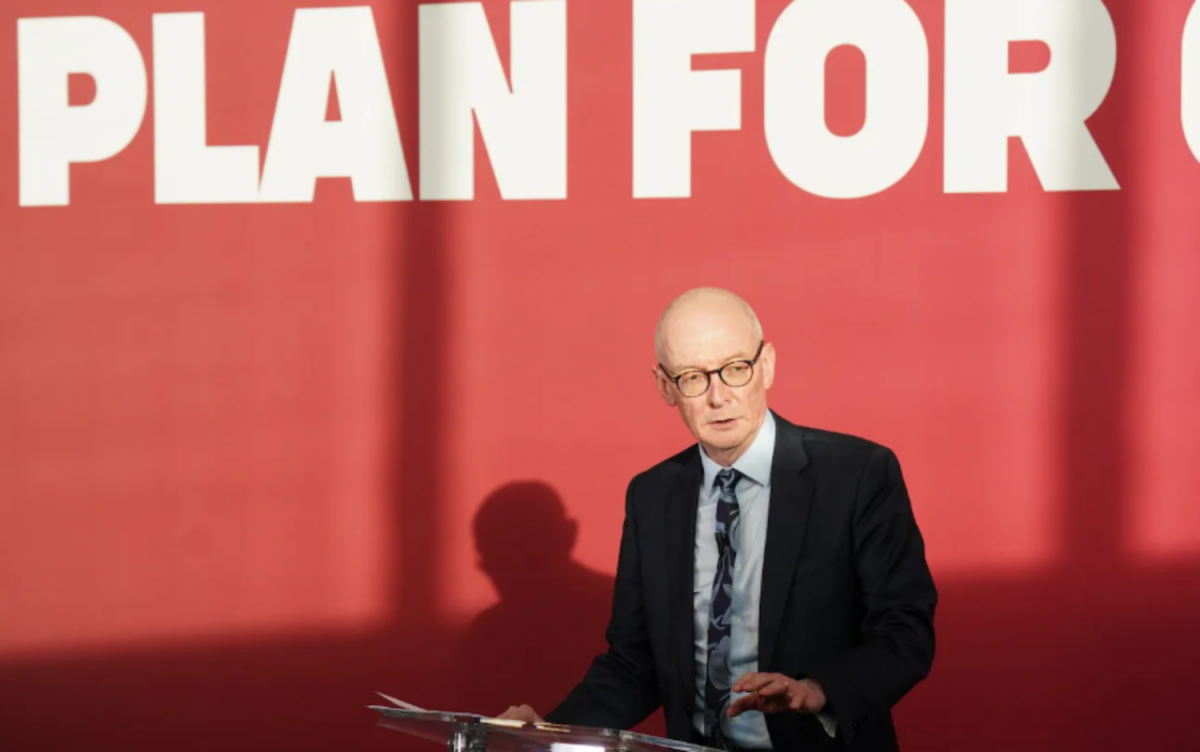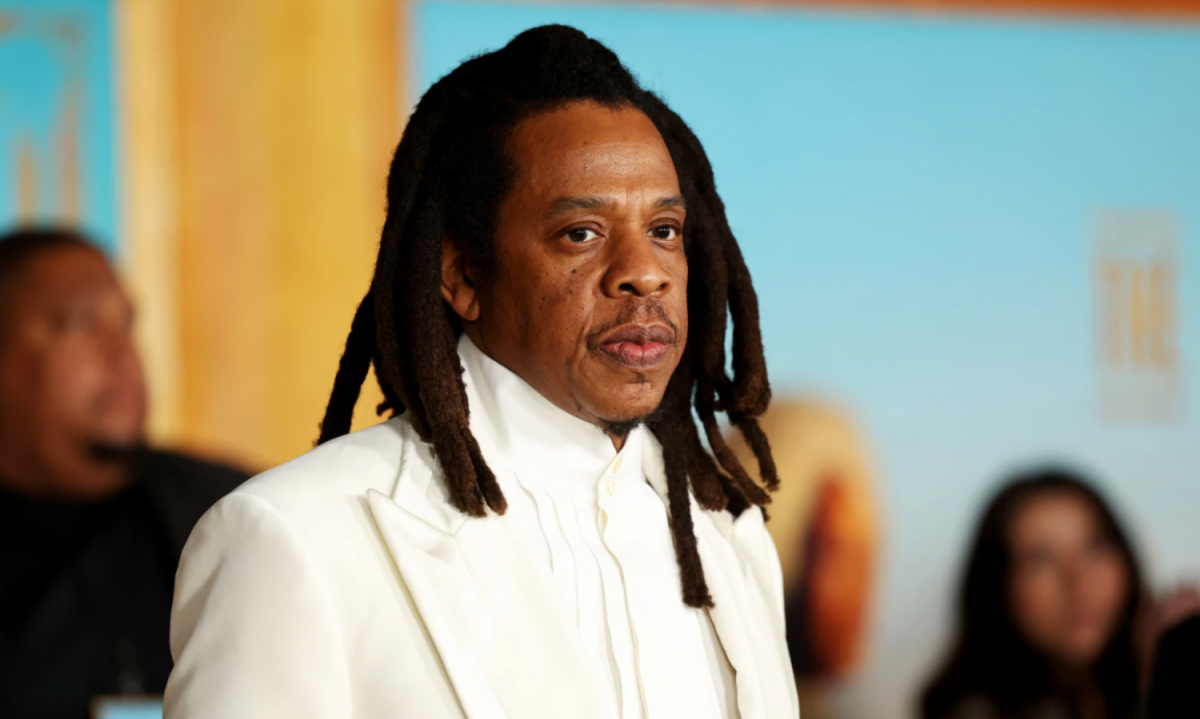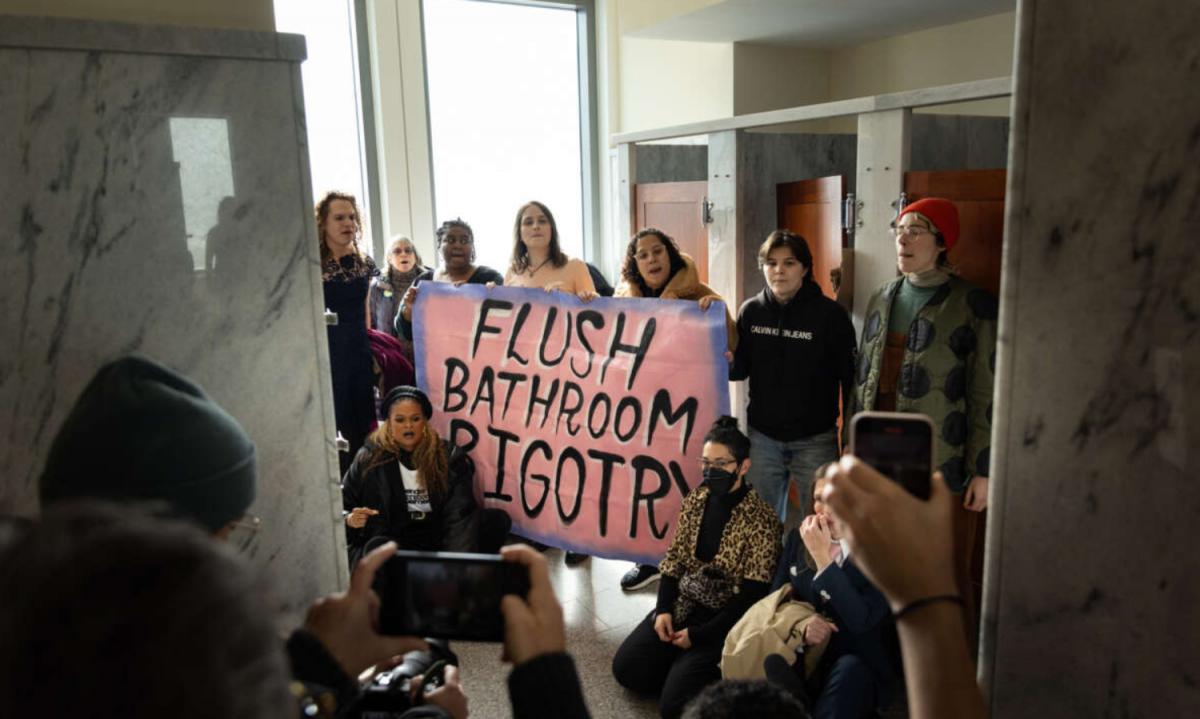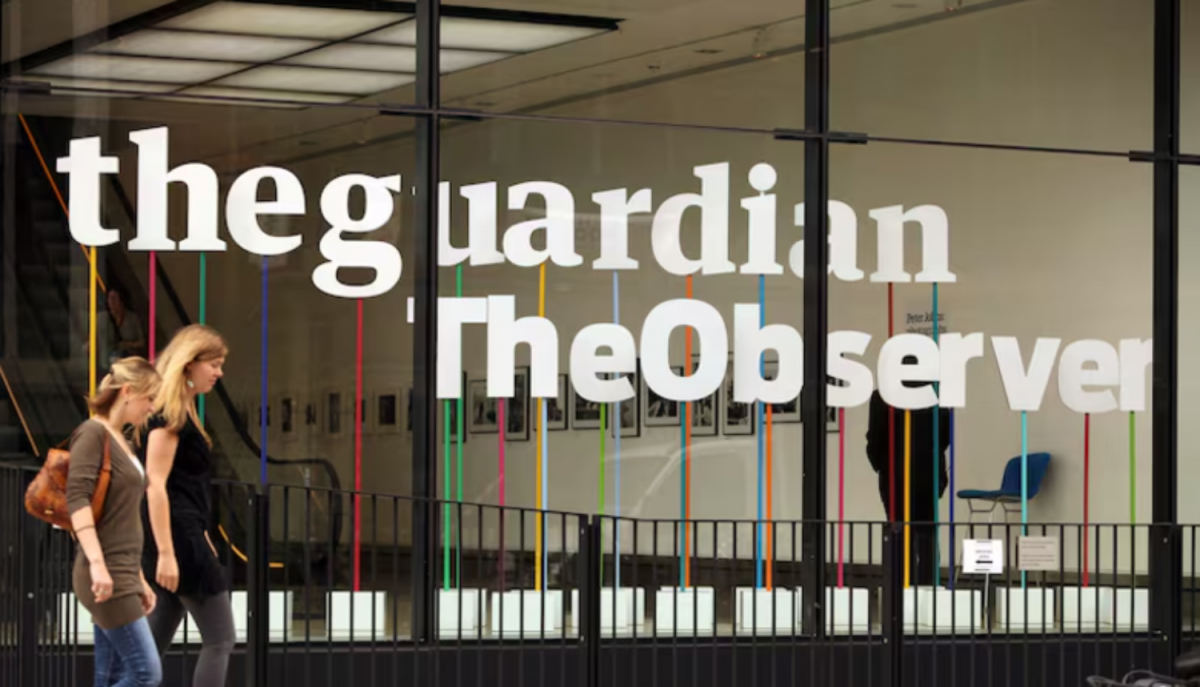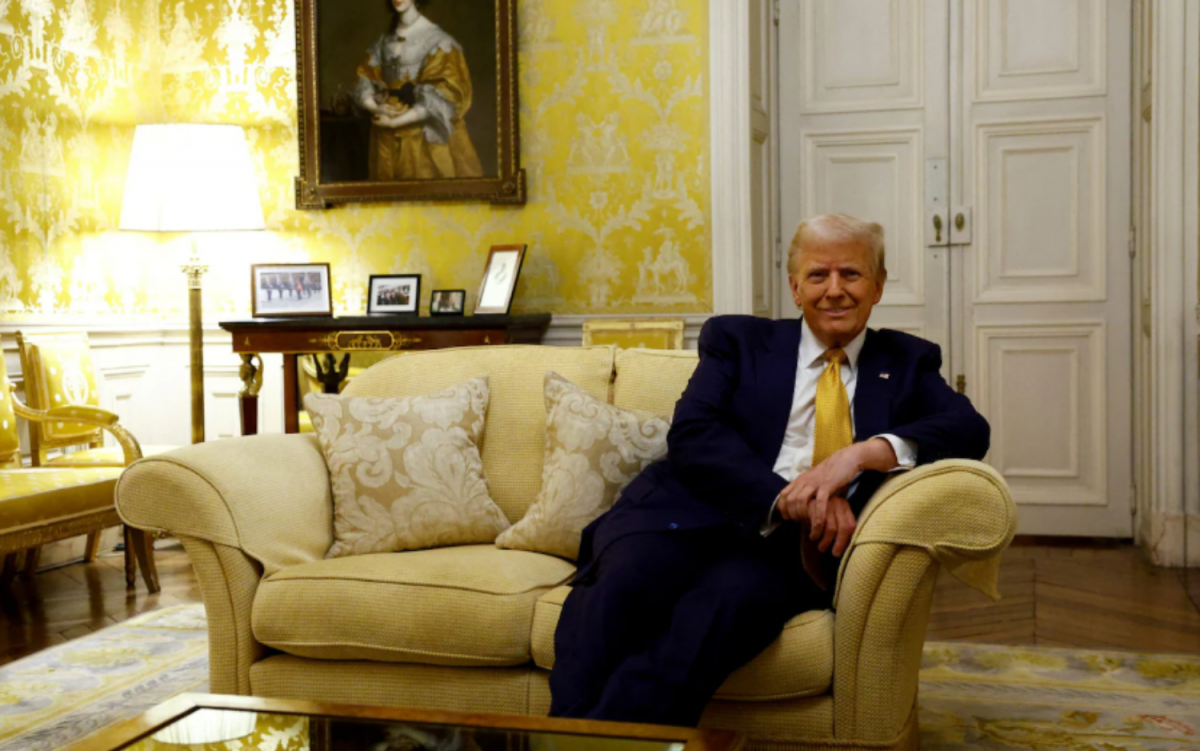-
Posts
10,807 -
Joined
-
Last visited
Content Type
Events
Forums
Downloads
Quizzes
Gallery
Blogs
Everything posted by Social Media
-
Google made waves this week with the unveiling of Willow, its latest quantum computing chip. While the chip's remarkable speed and reliability were impressive in their own right, it was an unexpected claim about the nature of reality that truly captured attention. Hartmut Neven, founder of Google Quantum AI, suggested that the chip's groundbreaking performance might be evidence supporting the existence of parallel universes. In a blog post, Neven detailed Willow's astonishing capability, stating that it performed a computation in under five minutes that would take one of today's most advanced supercomputers an almost inconceivable 10 septillion years to complete. “If you want to write it out, it’s 10,000,000,000,000,000,000,000,000 years,” he wrote. This timespan, far exceeding the age of the universe, led Neven to speculate that the computation may have tapped into resources from parallel universes. He went on to say, “It lends credence to the notion that quantum computation occurs in many parallel universes, in line with the idea that we live in a multiverse, a prediction first made by David Deutsch.” The bold assertion sparked a lively debate across the tech and scientific communities. While some skeptics dismissed the claim as hyperbole, others argued that Neven's conclusions were plausible. The concept of a multiverse, while often relegated to the realm of science fiction, has long been a serious area of study for pioneers of quantum physics. Skeptics, however, have pointed out that Google's performance benchmarks are based on its own metrics, which leaves room for scrutiny. They argue that the astounding computational achievements of Willow, while undoubtedly impressive, don't necessarily prove the existence of alternate realities. These concerns highlight the difficulty of connecting the practical achievements of quantum computing to profound philosophical implications about the nature of existence. Quantum computing itself is fundamentally different from classical computing. Traditional computers rely on bits that exist in binary states—either 0 or 1. In contrast, quantum computers use qubits, which can exist in superpositions, being both 0 and 1 simultaneously. Additionally, qubits can leverage quantum entanglement, a phenomenon where particles become intrinsically linked regardless of distance. These unique properties allow quantum computers to solve complex problems that are currently beyond the capabilities of classical machines. Willow’s extraordinary performance has reignited interest in quantum mechanics and its implications for our understanding of reality. While it remains to be seen whether Neven's claims about the multiverse will withstand scientific scrutiny, the chip's achievements mark a significant step forward in quantum computing. As researchers continue to push the boundaries of technology and physics, debates over the existence of parallel universes may move closer to the mainstream. For now, the mystery of Willow’s mind-bending capabilities is as intriguing as the questions it raises about the very nature of existence. Based on a report by TechCrunch 2024-12-12
-
A recent Siena College poll has revealed that a majority of New Yorkers are in favor of President-elect Donald Trump’s controversial proposal to deport millions of undocumented immigrants, a plan that was a central theme of his presidential campaign. This includes an unexpected finding: nearly half of Latino respondents and a significant number of self-identified liberals support the measure. The survey, conducted between December 2 and December 5, involved 834 registered voters and has a margin of error of approximately four percentage points. The results indicate that 54% of respondents across the state believe New York should align with Trump’s deportation agenda, while 35% think the state should oppose it. The data underscores a deep divide across demographic and political lines, with support reaching surprising corners. Among Democrats, 38% expressed approval for the deportation plan, compared to a whopping 87% of Republicans and 54% of independents. Gender also played a role in shaping opinions, with 61% of men backing the plan versus 49% of women. Opposition among women stood at 38%, slightly higher than the 31% of men who opposed it. Racial differences were less pronounced, though still notable, with 56% of white respondents, 51% of Black respondents, and 47% of Latino respondents showing support. Additionally, a striking 30% of self-described liberals expressed agreement, defying expectations given Trump’s often polarizing policies. The context for these numbers may lie in the strain the ongoing migrant crisis has placed on New York City. Since the spring of 2022, more than 224,400 migrants have entered the city’s intake system, creating a financial burden estimated at $6.1 billion. Although the pace of arrivals has slowed, with 11 emergency shelters closing over the past six weeks, over 56,000 migrants remain in the shelter system as of late November. Mayor Eric Adams has also adopted a tougher stance on immigration in recent months, particularly when addressing migrants who have been accused of crimes. Speaking last week, he stated, “My position is people who commit crimes in our city, you have abdicated your right to be in our city, and I am open to figure out the best way to address that. Those who are here committing crimes, robberies, shooting at police officers, raping innocent people, have been a harm to our country.” Adams’ comments reflect growing frustration among many city residents and officials as they grapple with the challenges posed by the influx. The poll results suggest that this frustration may be fueling broader support for more stringent immigration policies, even among groups typically resistant to Trump’s rhetoric. As the state continues to navigate these tensions, the poll highlights the complexities of public opinion on immigration—a deeply divisive issue with implications that reach far beyond party lines. Based on a report by NYP 2024-12-12
-
Chancellor Rachel Reeves has refused to categorically rule out tax increases next year, fueling uncertainty over Labour’s fiscal strategy. Speaking on Tuesday as she launched the Government’s spending review, Reeves emphasized the challenges of planning five years of budgets within the first five months of her tenure. Reeves, who raised taxes by £40 billion in her first Budget on October 30, defended the scale of the measures, describing them as a necessary step to address what she termed the “chaos and mismanagement” left by the previous Conservative government. She stressed that this was a “once-in-a-Parliament Budget” and promised not to repeat such a significant financial overhaul in the future. “I can’t write five years’ worth of budgets in just the first five months of government,” Reeves explained. “This was a once-in-a-Parliament Budget to wipe the slate clean. I will never have to repeat a Budget like that because we have now drawn a line under the mismanagement of the Conservatives.” Despite her reassurances, questions about Labour’s future tax plans have persisted. At the Confederation of British Industry (CBI) conference in late November, Reeves stated she would not pursue additional borrowing or tax hikes. However, Labour leader Sir Keir Starmer later avoided making a similar commitment. When challenged by Kemi Badenoch at Prime Minister’s Questions on November 27, Starmer declined to repeat the pledge, citing the unpredictability of future events. On December 6, Starmer elaborated on this stance, acknowledging that unforeseen circumstances, such as the Covid pandemic or the war in Ukraine, could necessitate changes to tax policy. “I don’t want to in any way suggest that we are going to keep coming back for more because that isn’t the plan,” Starmer said. “But what I can’t do is say there are no circumstances unforeseen in the future that wouldn’t lead to any change at all.” The £40 billion tax hike announced in October included a £25 billion increase in employer National Insurance contributions, which formed the bulk of the new measures. Reeves also unveiled a new spending review aimed at improving fiscal efficiency, urging government departments to find 5% in savings for day-to-day spending over the next five years. Reeves expressed confidence in achieving this target, emphasizing that the focus would be on ensuring taxpayers’ money was not wasted. “I have no doubt the 5% target can be achieved,” she said. While Reeves insists the October Budget was an exceptional measure, her reluctance to dismiss the possibility of further tax increases has left questions lingering about the government’s long-term approach. This uncertainty has amplified scrutiny over Labour’s economic policies as they navigate the challenges of stabilizing public finances amid shifting global circumstances. Based on a report by The Daily Telegraph 2024-12-12
-
A series of anti-Semitic incidents in Australia this week, sparking condemnation from officials and communities alike. On Wednesday, vandals torched a car and painted anti-Israel graffiti in Woollahra, a suburb of Sydney known for its established Jewish community. Sydney’s eastern suburb of Woollahra became the scene of a disturbing act of anti-Semitic vandalism overnight. Graffiti with anti-Israel slogans was found scrawled across cars, fences, and footpaths, while a car was set ablaze in what authorities described as a hate crime targeting the Jewish community. This act came just days after an arson attack targeted a synagogue in Melbourne, further intensifying concerns about rising anti-Semitic violence in the country. Prime Minister Anthony Albanese condemned the attack, labeling it an “outrage” and emphasizing that such actions are entirely inconsistent with Australian values. Speaking at a press conference, he declared, “This is an attack on people because they happen to be Jewish. It diminishes us as a nation.” The Prime Minister announced increased funding of $8.5 million for the Sydney Jewish Museum to educate Australians on the dangers of hatred and anti-Semitism. Police were alerted to the incident at 1 a.m. on Wednesday after a vehicle on Magney Street was reported on fire. When officers arrived, they discovered not only the burning vehicle but also offensive graffiti with slogans like “Kill Israiel [sic]” defacing two homes and a footpath. Assistant Commissioner Peter McKenna noted that the car set alight was one the offenders had driven to the location. Authorities are now seeking two individuals, believed to be between 15 and 20 years old, who were seen fleeing the scene. NSW Police Commissioner Karen Webb urged the public to assist in identifying the perpetrators, stating, “The perpetrators were disguised, and we need public assistance to come forward and help identify those two people.” Commissioner Webb also assured that police resources would be fully deployed to investigate the matter, adding, “There is no place for hate of this nature in Sydney or anywhere in Australia.” The incident has left Sydney’s Jewish community shaken. Rabbi Benjamin Elton, chief minister of Sydney’s The Great Synagogue, expressed concern about the growing trend of anti-Semitic incidents in the country. “This is now a pattern, and it’s reached a new level of seriousness,” he said. NSW Premier Chris Minns also strongly condemned the vandalism, describing it as a “hate crime” aimed at instilling fear. “This is not simply just an act of vandalism on the streets of Sydney. We need to call it out for what it is,” Minns stated. Woollahra, home to a large Jewish population, has historically been a safe haven for families who fled persecution overseas. The Executive Council of Australian Jewry, through co-chief executive Alex Ryvchin, described the attack as a deliberate attempt to “terrorize” and isolate the Jewish community. Ryvchin called for swift action from the newly formed anti-Semitism task force. Alon Cassuto, chief executive of the Zionist Federation of Australia, echoed these sentiments, warning that anti-Semitism was escalating into domestic terrorism. “Jew-hatred is escalating, fueled by the demonization of Israel and a persistent failure to call out incitement,” Cassuto said. Adding to the outrage, Allegra Spender, Federal MP for the area, stressed the need for arrests and charges to deter such acts. “This sort of behavior is unacceptable and is not tolerated in our community,” she affirmed. Locals in Woollahra are reeling from the attack. Kellie Sloane, NSW Member for Vaucluse, described the fear among Jewish residents. “This is an attack by a couple of cowards who came into this street in the middle of the night with spray paint and evil intent in their hearts,” she said. The NSW Faith Affairs Council issued a statement condemning the incident as “an act of hatred” aimed at distressing and intimidating the community. “Hatred has no place in religion. It has no place in NSW,” the council stated. This latest act of vandalism follows a series of troubling incidents across Australia, including an arson attack at Melbourne’s Adass Israel Synagogue last month, which was declared a “likely terrorist incident.” While police have ruled out a connection between the Woollahra attack and previous events, the rise in anti-Semitic acts has sparked calls for stronger measures to combat hatred and protect vulnerable communities. As investigations continue, authorities remain determined to bring the perpetrators to justice and reaffirm that hate has no place in Australia. Based on a report by ABC 2024-12-12
-
Post removed @Ben Zioner 17. ASEAN NOW news team collects news articles from various recognised and reputable news sources. The articles may be consolidated from different sources and rewritten with AI assistance These news items are shared in our forums for members to stay informed and engaged. Our dedicated news team puts in the effort to deliver quality content, and we ask for your respect in return. Any disrespectful comments about our news articles or the content itself, such as calling it "clickbait" or “slow news day”, and criticising grammatical errors, will not be tolerated and appropriate action will be taken. Please note that republished articles may contain errors or opinions that do not reflect the views of ASEAN NOW. If you'd like to help us, and you see an error with an article, then please use the report function so that we can attend to it promptly.
-

Israel’s Disinformation Campaign Against UNRWA
Social Media replied to Social Media's topic in World News
Off topic personal attack troll post removed @OneMoreFarang The topic here is: Israel’s Disinformation Campaign Against UNRWA Not you closing your eyes to other members and publicily announcing you are placing them on your ignore list. A post on moderation additionaly removed by the same poster. Keep this up it will be more than posts removed. -
More than 50 children who visited a remote holy island off the coast of Wales were raped or subjected to vile sex abuse by paedophile monks, a leaked report reveals. Children as young as three were allegedly groomed and attacked in 'plain sight' on Caldey Island, a picturesque tourist spot off the Pembrokeshire coast. For more than 100 years, the island has been home to Caldey Abbey and a small community of Trappist monks. It receives up to 60,000 visitors a year. In April, an independent review was launched after several people came forward to report allegations of historic sex abuse, dating back more than 60 years. The review found that monks, and men with criminal records who claimed to be monks, were able to join the monastery without checks. They hid behind their 'chosen' religious names to carry out the horrific attacks, which took place while children were on summer holidays with their parents, often paid for by the Catholic church, or during visits with Catholic schools or youth groups, between 1960 and 1992. Some victims claim they told the then Abbot immediately, or later reported the sex attacks to teachers, police and the Catholic Church, but all were 'largely ignored', the investigation found. As part of the review, Jan Pickles, the former assistant police and crime commissioner for south Wales, interviewed 17 survivors who either lived on or visited the island. One victim told the Mail: 'Caldey Island is the perfect place for paedophiles and sex offenders to hide away or go undercover. They should change its name to Paedophile Island – no tourists would visit then.' The Caldey Island Survivors Campaign insists other monks, as well as Father Thaddeus, were responsible for the abuse of 54 victims who have come forward. The 540-acre island is a 20-minute ferry ride from Tenby. Father Jan Rossey, the new Abbot of Caldey Abbey who commissioned the review, has insisted he is committed to fostering openness and transparency. Based on a report by Daily Mail 2024-12-11
-
The UK’s employment landscape is faltering as Chancellor Rachel Reeves' tax-raising Budget delivers a heavy blow to businesses and jobseekers alike. The latest figures reveal that hiring activity has slowed at its most severe rate since the pandemic, casting a shadow over the nation's economic outlook. A report from the Recruitment & Employment Confederation (REC) and KPMG shows that demand for staff in November experienced its sharpest decline since August 2020. Permanent roles have been hit the hardest, with recruitment in this sector almost at a standstill. This slowdown comes as businesses brace for an impending increase in National Insurance contributions, set to take effect in April next year. Adding to the woes is a rise in redundancies, which has driven more people into the job market, intensifying competition for fewer opportunities. Neil Carberry, chief executive of REC, attributed the slowdown to economic uncertainties stemming from Reeves’ Budget, stating, “It should be a surprise to no one that firms took the time to reassess their hiring needs in November after a tough Budget for employers. The drop in vacancies was led by private sector permanent roles, and slower permanent recruitment billings across the month also reflected this trend.” He emphasized the critical question of whether businesses would regain confidence in the coming year. The backlash against Reeves' fiscal policies has been swift and strong, particularly from business leaders. The Budget includes a rise in employer National Insurance contributions from 13.8% to 15%, coupled with a significant reduction in the earnings threshold for workers—from £9,100 to £5,000. While these measures are projected to generate £25 billion for the Treasury, critics argue they will stifle growth and exacerbate existing challenges for businesses already grappling with inflation and rising operational costs. The policies have been widely criticized as a threat to economic stability. Reeves has been accused of “milking” businesses to fund Labour's spending priorities, with many warning of the potential to discourage investment and hinder job creation. Employers are increasingly cautious about long-term hiring commitments, leaving jobseekers facing one of the bleakest employment landscapes in years. The ongoing uncertainty highlights the broader consequences of Labour’s tax strategy. Businesses, caught between rising costs and diminished hiring capabilities, must navigate an increasingly precarious environment. For jobseekers, the combination of reduced opportunities and heightened competition underscores the significant challenges ahead as the UK prepares for another economically turbulent year. Based on a report by Daily Telegraph 2024-12-11
-
Pat McFadden, one of Sir Keir Starmer's most prominent ministers, has offered glowing praise for Elon Musk, calling him an "incredible innovator" despite the billionaire's ongoing criticism of the Prime Minister and his administration. Speaking as he unveiled plans to reform the Civil Service, McFadden highlighted Musk’s achievements in reimagining industries and pioneering new approaches. McFadden, the Chancellor of the Duchy of Lancaster, made his remarks during a speech in East London on Monday, where he outlined a vision for transforming Whitehall into a more dynamic and efficient organization, akin to a tech startup. This initiative aims to incorporate entrepreneurial methods into government operations, reflecting the influence of successful figures in the tech world like Musk. When asked whether the government was drawing inspiration from Musk’s role as Donald Trump’s efficiency tsar in the newly established Department of Government Efficiency, McFadden struck a balanced tone. He acknowledged Musk’s innovative prowess but tempered expectations, stating, "Let’s see how he gets on." Recalling past experiences of business figures transitioning into government roles, McFadden noted mixed results, saying, “Some of them were an enormous success – made great ministers, did great things. Some others less so.” While emphasizing Musk’s exceptional contributions to technology and industry, McFadden clarified that he was unaware of any direct outreach to Musk for advice on addressing the UK’s challenges. Despite the praise, Musk has been an outspoken critic of Sir Keir Starmer and his government. In August, he lambasted the Prime Minister's handling of summer riots, accusing him of going "full Stalin" following a government decision to increase inheritance tax on farmers. Musk also expressed support for a petition demanding a general election, which surpassed one million signatures in November. He described the situation in the UK as reflective of a “tyrannical police state.” McFadden's remarks underscore a nuanced relationship between political leaders and influential figures like Musk. While Musk’s critiques of the government remain pointed, his achievements as a visionary in technology continue to inspire admiration, even among those he openly opposes. For the UK government, embracing the innovative spirit of tech entrepreneurs could signal a willingness to modernize and adapt, even as it faces criticism from prominent voices. Based on a report by Daily Telegraph 2024-12-11
- 1 reply
-
- 1
-

-
In response to significant political changes in Syria, the UK government has decided to suspend decisions on asylum applications from Syrians. This move aligns with actions taken by Germany and Austria following the fall of Bashar al-Assad's regime. The decision reflects a cautious approach as nations assess the implications of the regime change on the safety of Syrians seeking refuge. It followed calls by senior Tory and Reform MPs for such a move after President Assad and his family fled the country in the face of a two-week march on Damascus by Islamist rebels. A Home Office spokesperson confirmed, “The Home Office has paused decisions on Syrian asylum claims whilst we assess the current situation. We keep all country guidance relating to asylum claims kept under constant review so we can respond to emerging issues.” The collapse of Assad’s government raises questions about the ongoing risk faced by Syrians who fled persecution under his rule. However, David Lammy, the Foreign Secretary, emphasized in Parliament that this pause would not impact those already part of the UK’s resettlement program. This scheme primarily assists individuals escaping conflict directly from Syria or neighboring regions. Currently, over 6,500 Syrians in the UK are awaiting decisions on their asylum applications. Most arrived via small boats across the English Channel, bypassing official resettlement channels. With 99% of Syrian asylum claims typically approved, they have one of the highest success rates, comparable to those of Sudanese, Eritrean, and Afghan applicants. The UK’s move mirrors Germany's recent decision to freeze decisions on more than 47,000 Syrian asylum applications. German Interior Minister Nancy Faeser stated, “In view of this unclear situation, it is right that the federal office for migration and refugees has today imposed a freeze on decisions for asylum procedures that are still ongoing until the situation is clearer.” Similarly, Austria has adopted a stringent stance. The country, home to one of Europe’s largest Syrian diaspora populations with approximately 100,000 Syrians, has also halted asylum proceedings for Syrian nationals. Austrian Chancellor Karl Nehammer directed the interior ministry to review all existing asylum grants for Syrians and suspend ongoing applications. An official statement from the ministry declared, “From now on, open (asylum) proceedings of Syrian citizens will be stopped.” This collective response by European nations underscores the uncertainty surrounding Syria’s future. As governments await clarity on the political and security situation, the fate of thousands seeking refuge hangs in the balance. Based on a report by Independent 2024-12-11
-
Jay-Z, the hip-hop mogul and entrepreneur, has asked a judge to reject a request for anonymity from a woman who accused him and Sean "Diddy" Combs of raping her when she was 13 years old in 2000. The lawsuit, filed under the name "Jane Doe," alleges that the assault occurred following an MTV Video Music Awards afterparty. The lawsuit, filed in the Southern District of New York, alleges that the accuser was driven to a house party after being told by a limousine driver that she "fit what Diddy was looking for." At the party, described as being filled with celebrities and illicit drug use, she claims she was given a drink that made her feel disoriented. According to the suit, she later went to a room to rest, where Jay-Z and Combs allegedly raped her while an unnamed female celebrity watched. Jay-Z has strongly denied the allegations, describing them as “idiotic” and calling for criminal rather than civil proceedings if the claims were true. “These allegations are so heinous in nature that I implore you to file a criminal complaint, not a civil one!! Whomever would commit such a crime against a minor should be locked away, would you not agree?” he said in a statement. Meanwhile, Buzbee has filed multiple lawsuits against Combs, who is also facing federal charges for racketeering, sex trafficking, and other offenses. Combs, currently in custody in Brooklyn and awaiting trial in May, has denied the allegations. His legal team labeled the lawsuits as "shameless publicity stunts, designed to extract payments from celebrities who fear having lies spread about them." The lawsuit against Jay-Z and Combs includes claims that the accuser signed a nondisclosure agreement to enter the party, which was held at a house with a U-shaped driveway. Following the alleged assault, she reportedly escaped, contacted her father, and is now seeking unspecified damages under New York’s Victims of Gender-Motivated Violence Protection Act. Both defendants have refuted the claims, with the case continuing to unfold under intense public scrutiny. Based on a report by NBC News 2024-12-11
-
The swift collapse of Syrian President Bashar al-Assad’s government has sent shockwaves through Tehran, dealing a severe blow to Iran’s “axis of resistance,” a key component of its foreign policy cultivated over decades. For 13 years, Iran funneled extensive resources into supporting Assad during Syria’s civil war. Yet, its efforts unraveled in mere days as Syrian rebels swiftly captured city after city, rendering Tehran’s investment futile and undermining its regional power projection. This failure is compounded by a string of setbacks suffered by Hezbollah, a cornerstone of Iran’s resistance alliance. Once a force feared by armies across the region, Hezbollah faced a resounding defeat by Israel last month and is now grappling with the challenge of rebuilding, dependent on Iranian aid. “The resistance front has had a really hard year,” Iranian Foreign Minister Abbas Araghchi admitted during an interview on state television. Still, he sought to emphasize the resilience of the alliance, pointing to Hamas’s continued attacks on Israel as a testament to its strength. “Nobody could have predicted that the front could be so strong,” he insisted. Yet, the collapse of Assad’s regime has left many doubting whether the alliance can survive intact. “Without Syria, we could see the entire axis of resistance just unravel,” a Western diplomat warned, speaking anonymously about the geopolitical implications. Within Iran, the fall of Assad has sparked widespread criticism. Even staunch supporters of Tehran’s foreign policy have questioned the wisdom of pouring billions of dollars into a network that disintegrated so quickly. Heshmatollah Falahatpisheh, a former member of parliament, expressed public discontent, writing on X, “Iranians can be happy. No one has the right to spend the nation’s dollars to maintain spiderwebs anymore.” Just weeks prior, Tehran’s axis of resistance seemed ascendant, bolstered by Hamas’s audacious attack on Israel on October 7, 2023. Iran’s allies, including Hezbollah in Lebanon, the Houthis in Yemen, and various factions in Iraq, rallied to Hamas’s cause, launching strikes on Israel and U.S. interests. Yet, rather than showcasing strength, these efforts revealed vulnerabilities. Israel responded decisively, neutralizing key leaders of both Hamas and Hezbollah while depleting their forces in Gaza and Lebanon. Iran’s direct confrontation with Israel only further highlighted its challenges. In October, it launched around 200 ballistic missiles at Israel, marking the largest attack in their shadow conflict. However, Israeli, U.S., and allied defenses intercepted most of the barrage, limiting its impact. Israel’s retaliatory strikes were devastating, targeting and destroying some of Iran’s most advanced military systems, including critical air defenses. Maria Luisa Fantappiè, a Middle East expert at the International Affairs Institute in Rome, critiqued Iran’s strategy. “Iran needs to rethink its strategy of proxies. The proxies have become more of a liability than an asset,” she observed. Iranian leaders had long argued that their network of militias provided a security buffer, enabling Iran to fight adversaries abroad. However, the recent conflict has undermined this rationale. “The axis is not an effective way to project power,” Fantappiè concluded. “On the contrary, it was projecting weakness.” As Assad’s regime crumbled, Tehran’s top officials were conspicuously silent. When the Foreign Ministry finally broke its silence, it underscored the historic ties between Iran and Syria, a muted response reflecting the gravity of the situation. Iran now faces a stark reality: its carefully constructed regional strategy is faltering. The collapse of Assad’s government and the setbacks faced by Hezbollah mark a pivotal moment for Tehran’s axis of resistance, forcing a reassessment of its ambitions and methods in an increasingly hostile and unpredictable geopolitical landscape. Based on a report by WP 2024-12-11
-
A celebration in Sydney marking the end of Bashar al-Assad’s regime in Syria took a troubling turn as a group of protesters were filmed chanting an antisemitic slogan. The incident occurred on Sunday in Chullora, where crowds had gathered to commemorate the overthrow of Assad, whose family ruled Syria for nearly five decades. In footage exclusively obtained by *The Daily Telegraph*, men and boys holding flags and loudspeakers chanted in Arabic: *“Khaybar, Khaybar, ya Yahud”*. The phrase references the Battle of Khaybar in 628, during which a Muslim army conquered a Jewish settlement in the Arabian Peninsula. The chant, which translates to “Khaybar, Khaybar, oh Jews. The army of Muhammad will return,” is often associated with anti-Israel demonstrations and has been widely condemned as antisemitic. The Anti-Defamation League (ADL), a prominent U.S.-based advocacy organization, has categorized the chant as antisemitic due to its historical and inflammatory connotations. While it is sometimes used as a rallying cry in political protests, its invocation at a celebration of Assad’s fall has sparked outrage and raised concerns about the nature of the rhetoric. The celebration itself was part of a larger wave of public rejoicing following the collapse of Assad’s government, marking the end of decades of authoritarian rule. Syrian rebels, led by Islamist factions, succeeded in toppling the regime, prompting gatherings around the world, including in Sydney. However, the presence of such inflammatory slogans overshadowed the event and highlighted the complexities of the region's politics and the narratives surrounding them. The chant not only brought antisemitism into a moment of celebration but also cast a shadow on broader efforts to promote unity and peace in the aftermath of Assad's downfall. As videos of the incident circulate, they have drawn criticism from community leaders and advocacy groups alike. The use of divisive and hateful language has sparked a renewed call for vigilance against antisemitism, emphasizing the need to ensure that public expressions of political victories do not devolve into displays of hate. ‘Come after the Jews’: Sydney rally turns ugly with antisemitic hate slogans “This comes just hours really after the synagogue in Melbourne was firebombed in an antisemitic attack … in the wake of that we have got lots of people out on the street in Sydney chanting Muhammad is going to come after the Jews.” Based on a report by Daily Telegraph AU 2024-12-11
-
- 1
-

-
Kemi Badenoch, the leader of the UK Conservative Party, recently dined with U.S. Vice President-elect JD Vance, marking a renewal of their political and personal camaraderie as preparations for Donald Trump’s return to the White House progress. The two have maintained a steady exchange of messages over the past year, and this meeting reaffirmed their shared vision for a new wave of conservative leadership. Following their dinner, Mr. Vance posted a picture on social media featuring himself alongside Mrs. Badenoch, both smiling warmly. Accompanying the image, he humorously wrote, “Great to see the leader of the UK Conservatives (Mrs. Badenoch) during her trip to the US. We discussed many topics, but I was unable to persuade her that coffee is much better than tea. Cheers, Kemi!” An associate close to Mrs. Badenoch highlighted the significance of their interaction, stating, “The dinner renewed their friendship, and Kemi and JD will continue to stay in touch as the Trump administration gets up and running. JD sees Kemi as one of those on the global Right doing the deep thinking about how we reform the state.” The ally further noted the duo’s alignment as part of a new generation of center-right politicians, citing parallels with Canada’s Conservative Party leader Pierre Poilievre and Florida Governor Ron DeSantis, who endorsed Badenoch’s leadership campaign. This meeting was not their first; the two previously crossed paths when Mr. Vance served as a senator and Mrs. Badenoch held the position of business secretary. Their connection reflects an emerging international collaboration among conservative leaders seeking to inspire younger generations with strong principles and innovative reforms. Mrs. Badenoch is not the only UK political figure to engage with the incoming U.S. administration. Labour leader Sir Keir Starmer and Foreign Secretary David Lammy have also sought to establish connections with Mr. Vance. However, Mr. Lammy’s past remarks about Donald Trump—such as labeling him a “neo-Nazi sociopath” during his prior presidency—have cast doubts over the sincerity of these overtures. In addition to fostering relationships with key U.S. figures, Mrs. Badenoch used a recent speech at the International Democracy Union Forum to express support for Elon Musk, who was appointed by President-elect Trump to lead the newly established Department of Government Efficiency (DOGE). Praising Musk’s efforts, she remarked, “The more state power grows, the more we curtail what people can and should do for themselves. Worse, we reduce people’s ability to think for themselves. This is why I am excited about DOGE and what president-elect Trump and Elon Musk will do on government efficiency. It is terrifying people around the world, but I think it will be absolutely brilliant.” Meanwhile, speculation has surfaced regarding Musk’s potential $100 million (£79 million) donation to Nigel Farage’s Reform UK party, further signaling the influential entrepreneur’s active engagement in reshaping political dynamics. As global conservative leaders like Kemi Badenoch and JD Vance continue to collaborate, their shared vision underscores a commitment to innovation and reform within the political landscape, setting the stage for the forthcoming Trump administration’s agenda. Based on a report by Daily Telegraph 2024-12-11
-
The Government of Israel has intensified its campaign against the United Nations Relief and Works Agency for Palestine Refugees (UNRWA), utilizing commercial advertisements, including billboards in various cities worldwide and paid Google ads on multiple websites. These measures mark the latest chapter in a broader effort by Israel to discredit UNRWA, with repeated public calls for the Agency’s dismantling. This campaign’s use of global advertising channels to brand a UN entity as a terror organization has raised serious concerns. Such accusations, presented through media typically reserved for commercial messaging, may qualify as hate speech. By leveraging corporations that ordinarily promote consumer products, the campaign’s reach and potential harm have expanded significantly. UNRWA, currently the largest humanitarian provider for Gaza’s population amidst an ongoing war, faces severe reputational damage as a result. This campaign not only undermines the Agency's mission but also endangers its personnel. Reports indicate that since the war in Gaza began, 251 UNRWA team members have lost their lives, with many killed in direct or repeated strikes on UNRWA facilities. Two-thirds of the Agency’s buildings in Gaza have sustained damage, further compounding the crisis. The implications of this disinformation campaign extend beyond reputational harm. By framing UNRWA in a manner that could incite hostility, the campaign potentially jeopardizes the safety of its workers on the ground. This heightened risk underscores the need for accountability. Advocacy groups and international observers have stressed that those responsible for propagating such disinformation—including advertisement companies—must cease their involvement immediately. Calls for regulatory measures to curb the dissemination of damaging and potentially dangerous narratives are growing. Observers argue that mechanisms to address the misuse of advertising platforms for spreading disinformation about humanitarian organizations are essential to prevent further harm. Amid an escalating humanitarian crisis, UNRWA’s role remains critical, providing essential aid to a population enduring immense suffering. Efforts to undermine its work not only compromise the Agency’s effectiveness but also pose a direct threat to those it serves and employs. The international community is urged to take swift action to safeguard UNRWA’s mission and the lives of its personnel. Based on a report by UNRWA Press Release 2024-12-11
-
Police are questioning a man in Altoona, Pennsylvania, in connection with the fatal shooting of UnitedHealthcare CEO Brian Thompson last week in Manhattan. NYPD officials on Monday identified the man as 26-year-old Luigi Mangione. He is under arrest on gun charges, police said. More evidence: When he was searched by local police, the suspect was found carrying multiple fraudulent IDs, a US passport, a firearm and suppressor “consistent with the weapon used in the murder,” New York City Police Commissioner Jessica Tisch said. Kenny said the gun was a ghost gun “that had the capability of firing a 9mm round,” and it may have been 3D printed. Police also said one of the IDs was a fraudulent New Jersey ID matching the one the suspect used to check into a New York City hostel before the shooting. Recovered documents: A multi-page, handwritten document was also recovered from the suspect when he was arrested, according to Kenny. It seemed that the man “has some ill will towards corporate America,” Kenny said. In the document, the suspect rails against the health care industry and suggested that violence is the answer, a police official who has seen the document told CNN. Two quotes in the document include: “These parasites had it coming” and “I do apologize for any strife and trauma, but it had to be done,” an official said. Other key details: Police believe the suspect acted alone and they don’t think he was trying to flee the country, Kenny said. What we know about the suspect: The man has had no prior arrests in New York, according to Kenny. He is 26 years old and was born in Maryland. His last known address was in Honolulu, Hawaii, Kenny said. How the investigation unfolded: Investigators deployed drones, K-9 units and even scuba divers during the search, Tisch said. In addition to combing through hours of video — which led to the photo of the suspect without a mask on — detectives also went door-to-door, she said, adding that tips led to the recovery of crucial evidence. What happens now: NYPD detectives are on their way to Pennsylvania, where they hope to interview the suspect further, Tisch said. The suspect would need to be extradited to New York to face any charges there. Based on a report by CNN 2024-12-10
-
What began as Elon Musk’s ambitious dream to colonize Mars has evolved into a transformative enterprise with profound military implications. While Musk's visions of interplanetary life were once dismissed as science fiction, his relentless pursuit of advanced space technologies has positioned SpaceX as a pivotal force in reshaping global security dynamics. Defense experts suggest that the technological strides achieved by SpaceX may not only deter rivals like China but could also decisively influence the outcome of potential conflicts. Musk himself has hinted at these implications. Recently, he remarked that his efforts to send humans to Mars by 2028 could result in "alien-level technology" far superior to any competitor. This vision aligns with U.S. defense strategies, particularly as the Pentagon focuses on countering China's growing military influence. SpaceX’s contributions, from the revolutionary Starlink satellite system to the powerful Starship rocket, have become critical components of these preparations. Starlink, initially envisioned as a funding mechanism for Mars expeditions, has become indispensable on modern battlefields. Its capabilities in encrypted communications and drone swarm coordination are unmatched globally. With about 6,400 satellites deployed in just five years, Starlink represents the world’s largest satellite network. Todd Harrison, a space policy expert, notes that this head start likely gives the United States a decade-long advantage over China in this domain. Former SpaceX senior director Gary Henry believes Starlink and Starship’s military applications serve as a powerful deterrent, stating, "No company or nation-state actor will be able to replicate or match Starship’s evolving performance capabilities in our lifetimes." Starship, the most powerful rocket ever built and the first reusable heavy-duty rocket, exemplifies SpaceX’s technological edge. While Musk touts its potential for space exploration, the U.S. military sees its strategic value in rapid troop and equipment deployment. With a carrying capacity of 165 tons, Starship offers unprecedented logistical advantages, particularly in scenarios involving rapid responses in Asia. Gen. B. Chance Saltzman, chief of space operations for the U.S. Space Force, recently visited SpaceX’s facilities to assess the rocket’s progress, highlighting its significance to future defense strategies. Starlink’s value extends beyond communications and reconnaissance. Amid revelations of "Salt Typhoon" cyberattacks by Chinese hackers targeting U.S. telecommunications, Starlink has emerged as a secure alternative. Its encrypted government service, Starshield, offers robust protections against cyber threats. Unlike much of the global telecommunications infrastructure, Starlink's hardware is manufactured in the United States, reducing vulnerabilities to foreign tampering. Moreover, Starlink is on track to develop a surveillance network capable of real-time global monitoring, revolutionizing reconnaissance for the U.S. government. Robert O. Work, former deputy secretary of defense, praised SpaceX’s impact on reducing costs while enhancing capabilities, noting the rapid progress toward achieving continuous global visibility. These advancements could transform modern warfare, which Musk predicts will hinge on drones and hypersonic missiles rather than traditional human-piloted aircraft. China has expressed unease over these developments. State-controlled media has raised concerns about Starlink’s surveillance capabilities, warning that systems like Starshield could "wrap the entire Earth in a large web." Beijing’s anxieties underscore the strategic advantage SpaceX provides the United States in overcoming challenges like China’s "anti-access/area denial" strategy, which relies on missile installations to deter unauthorized approaches. While Musk's Martian ambitions may still seem far off, his work has already reshaped the military landscape on Earth. SpaceX’s innovations offer the United States a critical edge in deterring conflicts and asserting its global presence, ensuring that Musk’s dreams of the stars continue to ripple across geopolitics. Based on a report by WP 2024-12-10
-
In a groundbreaking discovery, scientists have unearthed the world's first mummified saber-toothed cat cub from the Siberian permafrost. The cub, which lived approximately 35,000 years ago, is remarkably preserved with its fur, paw pads, whiskers, and skin intact. This exceptional find, detailed in a study published in *Scientific Reports*, provides unprecedented insight into the anatomy and life of Homotherium latidens, an extinct Ice Age predator. One of the most striking features of the cub is the condition of its fur. “Perhaps the most surprising thing is the dark brown color and softness of the mummy’s fur,” remarked Alexey Lopatin, director of the Borissiak Paleontological Institute in Moscow and the study’s lead author. The fur, about an inch long, was integral to the radiocarbon dating process that established the cub's age. The mummy was discovered in Yakutia, Russia, four years ago during excavations for mammoth tusks. Researchers believe the cub met its end in a tragic accident. According to Lopatin, it likely drowned before being rapidly buried in sediment and frozen into the permafrost, which preserved its soft tissues over millennia. The study also sheds light on the physical traits of Homotherium latidens. Analysis of the cub revealed a thick neck, long forelimbs, small ears, and an unusually shaped muzzle with a large mouth and prominent upper lip. These features, along with the cub’s body proportions, support the hypothesis that the forelimbs played a significant role in the cat’s hunting strategy. Even at just three weeks old, these anatomical characteristics were already evident. Jack Tseng, a curator at the University of California, Berkeley, who was not involved in the research, described the discovery as "euphoric" for paleontologists. “It is essentially showing this preservation is possible in these predators, which are extremely rare to begin with,” Tseng stated. Although the cub’s iconic saber teeth had not yet erupted, the specimen provides valuable information about the species' developmental stages and growth into formidable Ice Age predators. Future studies aim to delve deeper into the cub's biology. Lopatin and his team plan to extract ancient DNA to determine the cub’s sex and investigate its genetic relationship with other feline species. Since the lower portion of the body is missing, genetic analysis is the only viable method to establish whether the cub was male or female. This mummified saber-toothed cat stands as a testament to the permafrost's ability to preserve ancient life. Its discovery not only enhances our understanding of Homotherium latidens but also opens the door to new research about Ice Age ecosystems and the creatures that roamed them. Based on a report by WSJ 2024-12-10
-
In a harrowing incident over the skies of Brazil, a single-engine aircraft carrying five passengers from Envira to Eirunepé encountered an unexpected and deadly collision: a vulture crashed through the cockpit windshield mid-flight, leaving the pilot and passengers in shock. The unsettling encounter, captured in striking footage, shows the bird's lifeless body dangling before the stunned pilot, its ominous presence turning the cockpit into a scene of chaos. “It was a close call!” the unnamed pilot recounted to Jam Press, describing the heart-stopping moment. The impact left the passengers fearing for their lives. “We thought we wouldn’t get out alive,” one shaken traveler admitted. The tense situation, however, was resolved by the skill and composure of the pilot, who managed to safely land the plane at Eirunepé airport without further incident. “It’s a miracle the pilot managed to land with that right in his face,” the passenger added, underscoring the high stakes of the dramatic descent. While relieved passengers expressed their gratitude for escaping unharmed, the pilot voiced concerns about the conditions that led to the collision. He pointed to a nearby rubbish dump as the culprit, describing it as a magnet for scavenging vultures in the area. “This is the fault of the rubbish dump next to the airport, which attracts an absurd number of vultures to the area,” he said. His comments highlight a serious aviation safety risk—one that local reports confirm has been a growing concern. The dangers of bird strikes are well-documented in aviation, and this incident is not an isolated one. In June 2023, a pilot flying across Ecuador experienced a similarly terrifying ordeal when a massive bird smashed into his cockpit, leaving him bloodied. The bird, believed to have been an Andean condor with a wingspan of up to nine feet, underscored just how devastating avian collisions can be. The Brazilian vulture encounter, though less physically injurious, serves as another stark reminder of the risks that wildlife can pose to air travel. With this latest incident, there is a renewed urgency for authorities to address the environmental conditions near airports, ensuring that neither pilots nor passengers have to face such unnerving and life-threatening situations again. Based on a report by NYP 2024-12-10
-
A group of over two dozen transgender advocates and allies staged a sit-in protest at a U.S. Capitol women’s restroom on Thursday, voicing their opposition to a proposed policy targeting the first openly transgender member of Congress. The demonstration took place near House Speaker Mike Johnson’s office and was organized in response to a measure introduced by Rep. Nancy Mace, R-S.C., that seeks to restrict access to restrooms based on biological sex. Among the 25 demonstrators, about 15 were arrested for violating a Washington, D.C., code related to crowding and obstructing within the Cannon House Office Building, according to Brianna Burch, a spokesperson for the U.S. Capitol Police. High-profile participants included Chelsea Manning, a former Army intelligence officer and transgender advocate, and Raquel Willis, a prominent journalist and author. Manning, reflecting on her participation, emphasized the personal stakes of the fight. “I’m not here as a leader or a spokesperson but simply as another member of my community who shows up unconditionally to support my siblings in this fight,” she said in a statement. “I will stand beside them no matter what. We didn’t start this fight, but we are together now.” The sit-in underscored the growing tensions surrounding transgender rights and representation in political spaces. Protesters criticized the proposed policy as an attempt to marginalize and erase the experiences of transgender individuals, urging lawmakers to reconsider measures they view as discriminatory. The protest marks a significant act of resistance in an ongoing battle for LGBTQ+ rights within the U.S. legislative landscape. Based on a report by NBC News 2024-12-10
-
Nearly 500 journalists from *The Guardian* and its sister publication, the *Observer*, went on strike last week to protest plans to sell the historic Sunday newspaper to a small digital startup. The strike, which began on Wednesday, lasted for two days and may resume this week if demands are not addressed. Carole Cadwalladr, a prominent investigative journalist and feature writer for the *Observer*, described the planned sale as a grave mistake. “We believe it’s a total betrayal of the Guardian’s values and promises that it’s made," she said. “The sale of the *Observer* to a loss-making startup is potentially the death of this historic brand." The journalists hope their action will prompt the Scott Trust, which owns the Guardian Media Group, to reconsider its approach. Cadwalladr explained that the strike is aimed at slowing down what many view as a rushed and predetermined process. The union representing the journalists believes other potential buyers could emerge if the decision-making process is extended and the situation reassessed. The *Observer*, first published in 1791, holds the distinction of being the world's oldest Sunday newspaper. Known for its liberal stance, it has hosted illustrious writers such as George Orwell and played a pivotal role in the establishment of Amnesty International. However, its future now hangs in the balance. The proposed buyer, Tortoise Media, is a small but respected news outlet founded in 2019 by James Harding, the former BBC News director and editor of *The Times*. While Tortoise Media is well-regarded, critics argue that it lacks the resources and stability to steward such a historic and significant brand. The Scott Trust, which operates similarly to a U.S. nonprofit, oversees the Guardian Media Group and is tasked with upholding the values of liberal journalism. In a joint letter to the Trust's board, the striking journalists emphasized the importance of preserving the *Observer*’s legacy. “The cause of liberal journalism is a fragile one, in Britain and beyond,” the letter stated. “We urge that the Scott Trust should act with a great sense of its duty of stewardship towards a title which has such a magnificent and storied history.” The Guardian Media Group acquired the *Observer* in 1993, and its content is widely accessible, with the work of its 70-plus journalists featured on the *Guardian*’s free website and in the print edition of the *Observer*. Despite concerns over the sale, the Guardian Media Group’s overall strategy has paid off in other areas. Its focus on a digital-first approach has helped the company secure significant revenue streams, particularly from international markets. According to the Trust’s latest annual report, more than a third of its revenue — and over half of its digital revenue — now comes from outside the U.K. The group has expanded its global presence, celebrating 10 years of *Guardian Australia*, launching *Guardian Europe* in September, and strengthening its American footprint. Still, for many, the *Observer* represents a legacy worth protecting. As the strike continues, the journalists and supporters hope their collective action will ensure that this historic title is given the thoughtful consideration and respect it deserves. Based on a report by OPB 2024-12-10
-
Sir Vernon Bogdanor, a distinguished academic at King’s College London and former professor at the University of Oxford, has called for government funding cuts to universities failing to address antisemitism effectively. He argues that institutions not adequately combating discrimination are in violation of the Equality Act 2010 and must face consequences to ensure accountability. Bogdanor's remarks come in the wake of an open letter, signed by hundreds of academics, directed to Lord Hague of Richmond, the newly appointed chancellor of Oxford University. The letter condemned a recent Oxford Union debate on Israel, during which a motion was passed labelling the nation as an "apartheid state responsible for genocide." The letter claimed the event subjected Jewish students to antisemitism and intimidation, thereby violating the law. Criticizing the event, Bogdanor, 81, remarked, “It wasn’t a debate in any sense. It was a kangaroo court with comments which were antisemitic and were against the law. It is also fairly clear that there was so much intimidation that several students were rather frightened to attend. So, it wasn’t really a proper debate of the sort that the Oxford Union ought to have.” Under the Equality Act 2010, discrimination based on religion or belief is prohibited, and the Crime and Disorder Act 1998 classifies incitement to racial hatred as a hate crime. At the Oxford debate, one speaker reportedly described an attack on Israel as "heroism," leading to criticism over the event's inflammatory rhetoric and alleged intimidation. Jonathan Sacerdoti, a Holocaust survivor’s son and the opposing speaker, accused the Union of promoting "bigotry, hatred, and mob rule." Bogdanor clarified his stance on the matter, emphasizing the importance of open dialogue. “There are no grounds for stopping a debate on the Gaza war and Israeli policies in the Union. There should be such a debate, and students are entitled to feel strongly on both sides of the issue. But as I said, there was freedom of speech for those who were hostile to Israeli policies and not for those who wished to defend them, and that’s not a debate,” he said. He noted that such incidents reflect troubling attitudes among some students. The issue of antisemitism is not isolated to Oxford. At Cambridge University, pro-Palestinian protests during graduation ceremonies disrupted events for hundreds of students. In response, the university warned the Cambridge for Palestine movement of potential legal action while affirming its support for peaceful protest. However, it condemned the disruptions caused by these demonstrations. The broader conflict in Gaza has heightened tensions on university campuses across the U.K., prompting calls for decisive action. In May, government ministers urged universities to address antisemitic abuse and ensure that protests do not interfere with academic life. Bogdanor believes such measures should remain a priority under future governments. “Rishi Sunak reminded [universities] of their responsibilities, and I think Keir Starmer should do the same,” he said. Drawing a comparison to the U.S., Bogdanor pointed out that former President Donald Trump had threatened to cut federal funding from universities failing to address antisemitism. “I don’t think Keir Starmer should appear to be less diligent in dealing with racism than Donald Trump,” he added. Universities UK, the representative organization for the country’s higher education institutions, declined to comment, stating it was unable to address individual cases. As debates over free speech, discrimination, and campus safety continue, Bogdanor’s calls for funding cuts underscore the urgency of holding universities accountable for creating inclusive and respectful environments for all students. Based on a report by The Times 2024-12-10 Related Topics: Oxford Union Faces Anti-Terror Probe Into Israel Debate Oxford Union Society Debate - Is Israel an Apartheid State?
-
A massive demonstration took place in London, with approximately 32,000 people marching to demand stronger action against the surge in antisemitism and extremism in Britain. Organized by the Campaign Against Antisemitism (CAA), the protest sought to address what the group described as "unprecedented levels" of anti-Jewish sentiment and growing societal extremism. The protest comes in the wake of what the CAA describes as a "tidal wave" of antisemitism following Hamas’ attack on Israel on October 7 of the previous year. The group reported that hate crimes targeting Jews have quadrupled in the past year. Official data reflects this alarming trend, with the Metropolitan Police recording 2,170 antisemitic hate crimes in the 11 months since October 7, surpassing Islamophobic hate crimes, which stood at 1,568 during the same period. Amichai Chikli, Israel’s Diaspora Affairs Minister and a member of Prime Minister Benjamin Netanyahu's Likud Party, labeled London the most antisemitic city in the West. He attributed this to the influence of "radical Left and Islamic extremism," claiming the city is no longer safe for Jews. "Today in the UK, Jews are hiding their yarmulkes and their stars of David. They know that if they speak Hebrew on the subway, they might get hit," he said. Chikli also highlighted the broader implications of this issue for British society, pointing out that even iconic symbols like the statue of Winston Churchill now require security. The surge in antisemitism is the highest recorded in recent years, with hate crimes against Jews tripling compared to the previous peak during the 2020-2021 Gaza conflict. Protesters emphasized the need for immediate and effective measures to counter this alarming rise in hostility, calling on the government and broader society to act decisively against hate and extremism. Based on a report by WP 2024-12-10
-
Donald Trump, in his first interview since securing the presidency for a second term, pledged that his administration would not be marked by retribution against political opponents. Speaking on NBC’s *Meet the Press*, the president-elect emphasized that his focus would be on policies such as energy independence and migration reform, not revenge. "Retribution will be through success," Trump declared, signaling a shift away from the combative tone many critics anticipated. The 78-year-old president-elect, who has spent the last month assembling his new administration, stated that his upcoming inauguration speech on January 20 would call for "unity." When pressed about whether he would use the federal government to pursue figures like Liz Cheney, a prominent critic and member of the committee investigating the January 6 Capitol riots, Trump dismissed the idea. Referring to Cheney and others as “political thugs” who “should go to jail,” he clarified that he would not direct the FBI to prosecute her. Instead, he reiterated his intention to prioritize energy policies, underscoring his commitment to “drill, baby, drill.” Rejecting claims that his presidency would revolve around vendettas, Trump remarked, “I’m not looking to go back into the past. Retribution will be through success.” Trump also addressed foreign policy during the interview, renewing his critique of NATO allies who he believes are not contributing their fair share to defense. He proposed raising the alliance's spending target to three percent of GDP, a 50 percent increase from current levels. Trump accused countries like France and Germany of "free-riding" on the strength of the U.S. military. “If they’re treating us fairly, the answer is absolutely, I’d stay with NATO,” he said. However, he warned that the U.S. could leave the alliance if member nations failed to “pay their bills.” In a notable policy stance, Trump suggested that Ukraine should “probably” expect a reduction in U.S. military aid under his administration. He attributed the blame for Russia’s invasion in February 2022 to President Joe Biden, claiming that it was avoidable under different leadership. On the Israel & Hamas war Donald Trump tells NBC News that he does not think many of the hostages held in Gaza are alive, 14 months on from the October 7 Hamas onslaught in southern Israel. “I’m not a big believer in the fact that there are too many of them living, sadly,” he says, when asked about the 96 hostages still believed to be captive in Gaza. “I hate to say it, I think you have far fewer hostages than people think,” he tells NBC. “It’s only my opinion, but I’ve been right on just about everything.” Asked whether he would pressure Prime Minister Benjamin Netanyahu to end the war in Gaza, where Israel has been battling Hamas, Trump says: “Yeah. Sure.” “I want him to end it, but you have to have a victory,” he says. “People forget about October 7…I noticed that a lot of people are saying ‘Oh, it never really happened.’ That’s like the Holocaust,” Trump continues. “You know, you have Holocaust deniers. Now you have October 7th deniers, and it just happened. The interview, recorded ahead of a trilateral meeting between Trump, French President Emmanuel Macron, and Ukrainian President Volodymyr Zelensky, comes as Trump seeks to position himself as a leader focused on policy-driven governance rather than partisan retribution. The meeting took place on the sidelines of a ceremony celebrating the reopening of Paris’s Notre-Dame Cathedral, further underscoring Trump’s intent to engage in global diplomacy while reshaping his domestic agenda. Based on a report by Daily Telegraph | TOI 2024-12-10




